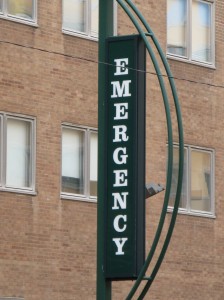神è¯æœ‰å…³åŠ 拿大的医疗 (国内外)
 Canada’s health care system has been getting plenty of 按ä¸ç¾Ž. 近期 during the intense debate about health care reform.
Canada’s health care system has been getting plenty of 按ä¸ç¾Ž. 近期 during the intense debate about health care reform.
American journalist T.R. 里德, has just published a new book, 美国的愈åˆ: A Global Quest for Better, 便宜, 和公平的å«ç”Ÿä¿å¥, in which he looks at not just the Canadian system, but at health care models around the world.
Reid shares his own experiences seeking care for his “bum shoulder” in the U.K., 法国, 德国, 日本, å’ŒåŠ æ‹¿å¤§.
In an article for the “åŽç››é¡¿é‚®æŠ¥â€, “5 关于å«ç”Ÿä¿å¥çš„神è¯çŽ¯æ¸¸ä¸–ç•Œ,” Reid argues that the U.S. health care system actually takes elements from many other countries’ medical models, including Canada’s:
多方, foreign health-care models are not really “foreign” to America, because our crazy-quilt health-care system uses elements of all of them. For Native Americans or veterans, we’re Britain: The government provides health care, funding it through general taxes, 和病人没有得到票æ®. For people who get insurance through their jobs, we’re Germany: Premiums are split between workers and employers, and private insurance plans pay private doctors and hospitals.
For people over 65, we’re Canada: Everyone pays premiums for an insurance plan run by the government (医疗ä¿é™©), and the public plan pays private doctors and hospitals according to a set fee schedule. And for the tens of millions without insurance coverage, we’re Burundi or Burma: In the world’s poor nations, sick people pay out of pocket for medical care; those who can’t pay stay sick or die.
You can also listen to an interview with Reid about his health care adventures on NPR’s 新鲜空气.
é‚£ä¹ˆï¼Œä»€ä¹ˆåŠ æ‹¿å¤§äººè®¤ä¸ºè‡ªå·±çš„å¥åº·ä¿å¥ç³»ç»Ÿ?
Despite ongoing concerns about 漫长的ç‰å¾… for certain types of medical procedures, a recent survey by the åŠ æ‹¿å¤§å«ç”Ÿä¿¡æ¯ç ”究所 found that overall, Canadians are “happy with primary health care.”
图片©å¡ç½—ç³ä¹™. æµ·å‹’




















